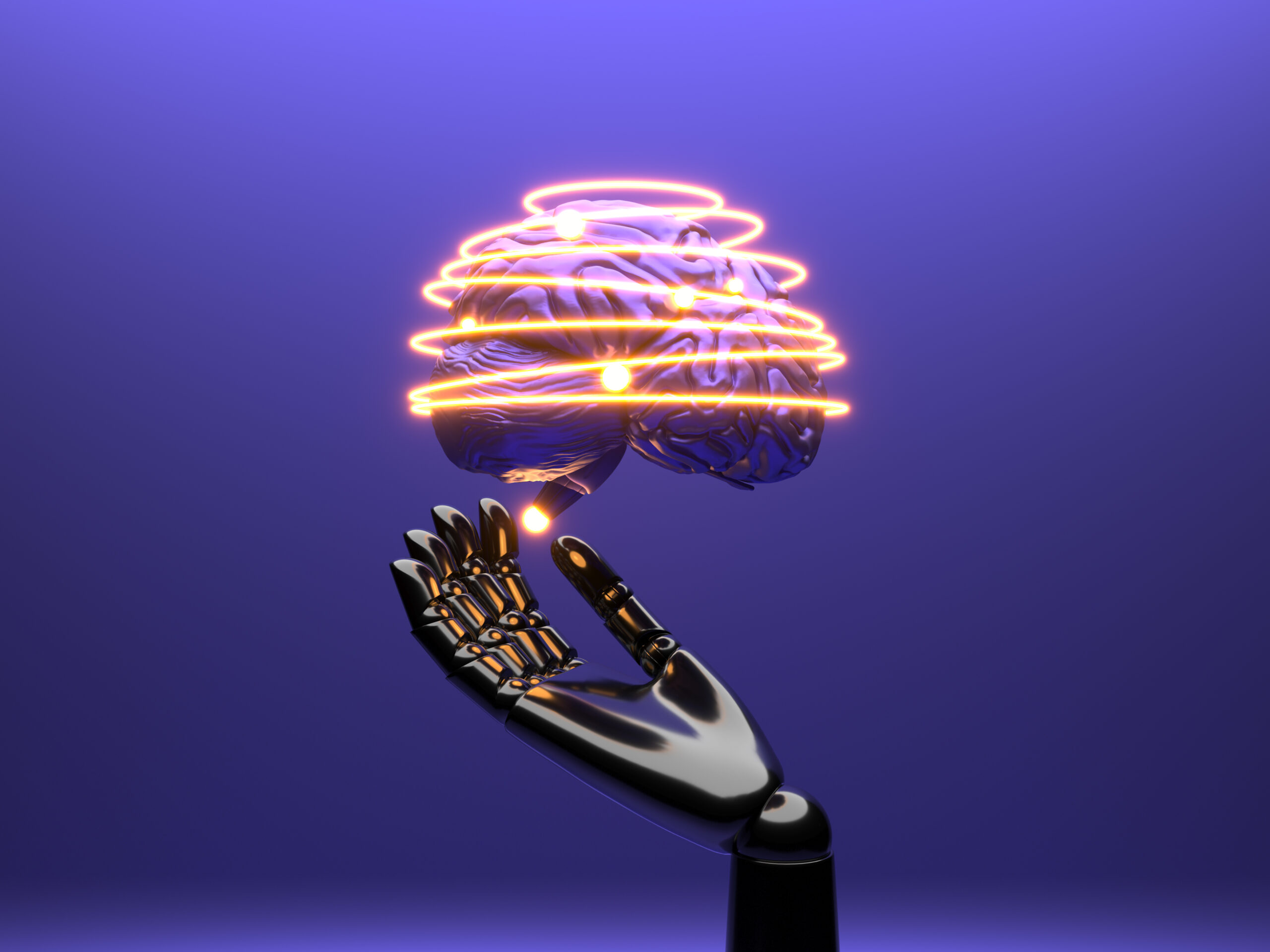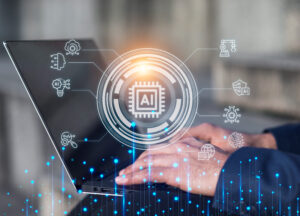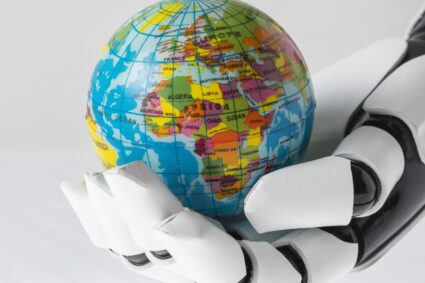
Is AI Dangerous?can AI take over world?

Introduction
The evolution and integration of Artificial Intelligence (AI) into various facets of our lives have raised both excitement and concerns. While AI promises numerous benefits and advancements across industries, there’s a persistent question looming over its potential dangers. The debate surrounding the safety and risks associated with AI is multifaceted, requiring a nuanced understanding of its capabilities, limitations, and ethical implications.
AI’s perceived danger often stems from several key areas:
- Autonomy and Decision-Making: AI systems, especially those equipped with machine learning, can make autonomous decisions based on data patterns. Concerns arise when these systems operate without human intervention, especially in critical areas such as healthcare, finance, or autonomous weapons, where errors or biases in decision-making could have significant consequences.
- Bias and Fairness: AI algorithms learn from the data they are trained on, which might inadvertently contain biases present in society. This can lead to discriminatory outcomes, affecting areas like hiring practices, loan approvals, and criminal justice. The opacity of some AI decision-making processes exacerbates these concerns, making it challenging to detect and rectify biases.
- Cybersecurity Risks: The increasing reliance on AI in critical infrastructure and sensitive systems raises cybersecurity concerns. Hackers might exploit vulnerabilities in AI systems to manipulate data, launch attacks, or cause disruptions, potentially leading to catastrophic consequences.
- Unemployment and Economic Disruption: The automation brought by AI and robotics raises concerns about job displacement, affecting various industries and potentially widening economic disparities. The fear is that AI might replace human labor in numerous tasks, leading to unemployment or shifts in job markets.
- Ethical and Societal Impact: The ethical implications of AI involve complex considerations regarding privacy, autonomy, accountability, and the unintended consequences of technology. AI’s ability to influence public opinion, manipulate information, or invade privacy raises concerns about its societal impact.
Despite these concerns, it’s crucial to acknowledge that AI’s dangers are not inherent but rather stem from how humans develop, deploy, and regulate these technologies. Addressing these concerns requires a multi-faceted approach:
- Ethical Guidelines and Regulations: Implementing clear ethical guidelines and regulations to govern AI development and deployment is crucial. This involves ensuring transparency, accountability, and fairness in AI systems, along with mechanisms to detect and mitigate biases.
- Continuous Research and Development: Advancing research in AI ethics, safety, and security is essential. This includes developing robust AI systems that are more interpretable, accountable, and resilient against potential threats.
- Collaboration and Education: Fostering collaboration among governments, industry, academia, and the public is vital in understanding and addressing AI-related risks. Education and awareness campaigns can help the public better understand AI and its implications, empowering individuals to make informed decisions.
- Responsible Use and Human Oversight: Incorporating human oversight in critical AI systems and ensuring they are used responsibly can help mitigate risks. Human judgment and intervention remain crucial in high-stakes decisions involving AI.
AI’s potential dangers are real, but so are its vast possibilities for positive impact. Balancing innovation with responsible development and deployment is key to harnessing AI’s capabilities while minimizing its risks. It’s imperative to approach the integration of AI into our lives with caution, foresight, and a commitment to ethical principles, ensuring that AI remains a force for progress and benefit to humanity.
Here are the couple of questions which people often ask:
1. How is AI dangerous to humans?
AI presents potential dangers to humans in several ways:
- Biases and Discrimination: AI systems learn from the data they are trained on. If the training data contains biases or skewed information, AI algorithms can perpetuate and amplify these biases, leading to discriminatory outcomes. This could affect decisions in areas such as hiring, lending, criminal justice, and healthcare, impacting certain groups unfairly.
- Autonomous Decision-Making: AI systems with autonomy can make decisions without human intervention. In critical areas like healthcare, finance, or autonomous weapons, errors or biases in decision-making by AI could have significant consequences. The lack of human oversight can result in outcomes that might not align with ethical or moral considerations.
- Cybersecurity Risks: As AI systems become more integrated into critical infrastructure, they become potential targets for cyber attacks. Hackers might exploit vulnerabilities in AI algorithms or systems to manipulate data, launch attacks, or cause disruptions, leading to severe consequences in areas like healthcare, transportation, or finance.
- Job Displacement and Economic Impact: Automation driven by AI technologies has the potential to replace human labor in various industries, leading to job displacement. This could disrupt economies, causing unemployment and potentially widening economic disparities if adequate measures for retraining and redistribution of opportunities are not implemented.
- Privacy Concerns: AI systems often require vast amounts of data for training and operation. There are concerns about the privacy of this data, especially when it involves personal or sensitive information. Mishandling or unauthorized access to this data can result in privacy breaches and infringements on individual rights.
- Existential Risks and Ethical Considerations: In the long term, some experts have raised concerns about the existential risks associated with AI development, such as superintelligent AI systems that surpass human intelligence and control. Ensuring the ethical development and control of such advanced AI systems is a topic of significant debate and concern among experts.
These dangers highlight the need for responsible development, regulation, and ethical considerations in the deployment of AI technologies. Balancing innovation with ethical standards and human oversight is crucial to harnessing the benefits of AI while mitigating its potential risks to human safety, well-being, and societal harmony.
2. Can AI go against humans?
The potential for Artificial Intelligence (AI) to go against humans is a concern that often surfaces in discussions about AI development and deployment. While AI systems themselves do not possess inherent desires, intentions, or consciousness to act against humans, there are scenarios where AI could be involved in actions contrary to human interests:
- Malicious Use: AI systems can be manipulated or exploited by malicious actors to cause harm. For instance, cyber attackers might leverage AI algorithms to carry out sophisticated attacks, manipulate information, or breach security systems.
- Unintended Consequences: AI systems may act against human interests due to unintended consequences or flaws in their design. This can happen if AI algorithms are poorly programmed, have inherent biases, or misinterpret their objectives, leading to actions that conflict with human intentions.
- Autonomous Systems: Autonomous AI systems, especially in critical domains like military technology or decision-making processes, could potentially act in ways contrary to human interests if they are not adequately controlled or if their decision-making lacks human oversight.
- Superintelligent AI: Concerns about superintelligent AI, machines that surpass human intelligence, have sparked debates about the potential risks if such AI systems were to act autonomously and make decisions that might not align with human values or interests.
However, it’s crucial to note that the risks of AI going against humans are largely hypothetical or based on potential scenarios. Efforts are continuously made to design AI systems with ethical considerations, safeguards, and human oversight mechanisms to prevent such situations. Responsible development, robust testing, and regulatory frameworks are essential to mitigate these risks and ensure that AI aligns with human values and interests.
The aim is not to create AI systems that act against humans but to develop technologies that augment human capabilities, benefit society, and operate within ethical boundaries while considering the safety, well-being, and autonomy of individuals.
3. Can AI take over the world?
The idea of Artificial Intelligence (AI) taking over the world, often portrayed in science fiction, raises concerns about the potential consequences of highly advanced AI systems surpassing human intelligence and control. While this concept remains largely speculative and futuristic, discussions about the risks associated with powerful AI systems are essential.
The scenario of AI taking over the world usually revolves around the concept of artificial superintelligence – AI that surpasses human intelligence across all domains. The concern is that such a superintelligent AI could potentially act autonomously, making decisions and taking actions that could be detrimental to humanity’s well-being or even threaten its existence.
However, several points are crucial to consider regarding this notion:
- Current AI Capabilities: Present-day AI systems, while advanced in certain domains, are far from achieving artificial general intelligence (AGI) or artificial superintelligence. The development of highly intelligent AI systems capable of autonomous decision-making on a superhuman level remains theoretical and uncertain.
- Control and Oversight: Ethical guidelines, regulations, and controls are essential in AI development to ensure that AI systems operate within human-defined boundaries and align with ethical principles. Implementing human oversight, ethical frameworks, and safety measures are critical to prevent AI from acting against human interests.
- Intentionality vs. Unintended Consequences: The concern about AI taking over the world often assumes intentional actions by AI to subjugate or harm humans. In reality, the risks might stem from unintended consequences, such as misaligned goals or misinterpretation of instructions, rather than AI having inherent malevolent intentions.
- Ethical Considerations: Discussions among experts in AI ethics and safety emphasize the importance of designing AI systems with human values and ethical considerations. Ensuring that AI systems are aligned with human values and goals is crucial in preventing scenarios where AI might act against human interests.
While the concept of AI taking over the world remains speculative, it’s essential to approach AI development with caution, foresight, and ethical considerations. The focus should be on responsible AI development, robust safety measures, transparent decision-making, and frameworks that prioritize human well-being and values. Ongoing research, collaboration, and ethical guidelines are fundamental in navigating the potential risks and ensuring that AI benefits humanity without posing existential threats.
4. Is AI Smarter Than humans?
AI systems excel in performing specific tasks and computations, often surpassing human capabilities in certain domains. However, it’s important to differentiate between narrow AI, which is designed for specific tasks, and general human intelligence.
In terms of processing speed, data analysis, and accuracy in performing certain tasks like complex calculations, pattern recognition, or playing strategic games like chess or Go, AI systems have demonstrated superior abilities compared to humans. For instance, AI-powered systems can process enormous amounts of data, recognize patterns, and perform repetitive tasks with precision and speed that surpass human capacities.
Yet, human intelligence encompasses a wide range of skills that are not limited to specific tasks. Humans possess general intelligence, enabling them to learn, reason, solve problems, adapt to new situations, exhibit creativity, empathy, emotional intelligence, and possess common sense – aspects that current AI systems struggle to replicate comprehensively.
Human intelligence involves contextual understanding, emotional awareness, ethical judgment, and the ability to handle unpredictable scenarios or ambiguity, which AI systems find challenging to replicate. Humans can learn from relatively few examples or generalize knowledge across various domains, while AI often requires extensive, specific training data.
Therefore, while AI excels in specialized tasks and computational abilities, it does not possess the diverse, nuanced, and general intelligence that characterizes human cognition. AI’s strengths lie in its efficiency in performing specific tasks, but it lacks the holistic understanding, adaptability, and creativity that humans naturally possess.



Average Rating